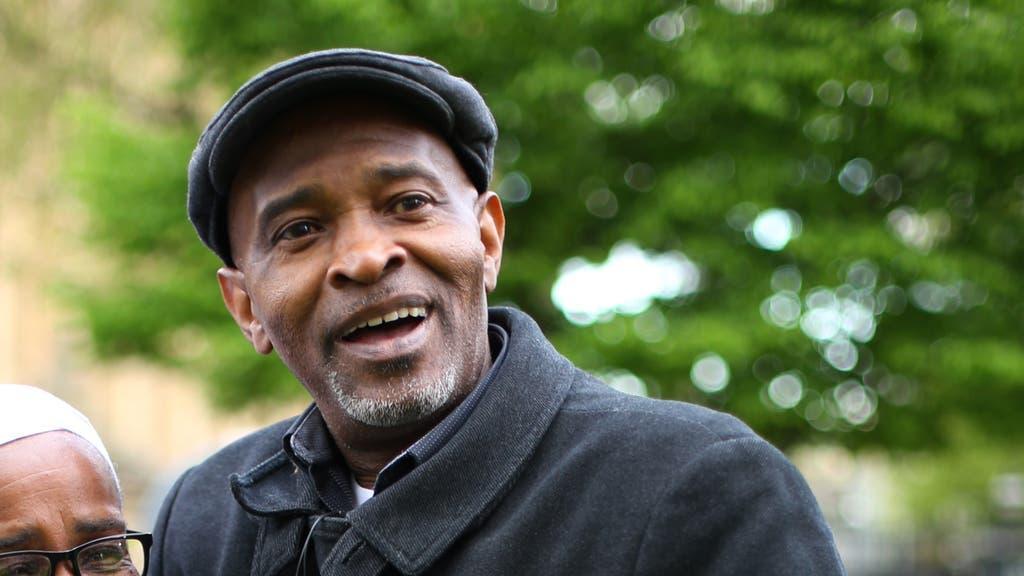Windrush compensation applicant told by Home Office he must do DNA test
Dijoun Jhagroo-Bryan received a demand for evidence of his relationship with his father, Anthony Bryan, who faced deportation despite living in Britain for five decades
The Home Office has been criticised for demanding that a Windrush scheme applicant take a DNA test before it would consider his claim for compensation.
Dijoun Jhagroo-Bryan, 39, described as “degrading” a requirement for evidence of his relationship with his father, Anthony Bryan, who faced deportation in 2017 despite living in Britain for five decades.
Anthony, 66, who moved to London from Jamaica at the age of eight, was wrongly arrested, detained twice and threatened with forced removal from the country.
But when Dijoun applied for compensation for long-term trauma and financial losses due to his dad’s plight, the Home Office demanded a DNA test.
“I’ve suffered watching my dad being held in prison and I’ve suffered going through the steps that I needed to do in order to get him to stay in the UK,” Dijoun told the BBC, adding that the experience has been traumatic.
“It’s outrageous. Me submitting a DNA test doesn’t change what I’ve gone through.”
Anthony’s story inspired television drama Sitting in Limbo, which won a BAFTA award in 2021. At the time he exclusively revealed to The Independent that the Home Office had failed to pay compensation for his plight.
Hours before the ceremony, a Home Office representative contacted Anthony and offered an “insulting” payment package, he said.
He eventually accepted a new offer, The Independent understands.
Now, his son Mr Jhagroo-Bryan has submitted an application on his own behalf, arguing that he and his children have been left with long-term trauma and financial losses due to his dad’s situation.

Anthony said he was stunned when his son told him about the DNA demand.
“They’re at fault and still we have to fight this and fight that, do a DNA test and get the midwife,” he said. “It’s degrading and, once again, it feels like the Home Office is insulting your intelligence.”
Human rights lawyer Jacqueline McKenzie believes racism is at the heart of how Black victims of the Windrush scandal are faring and that they are being held to a different standard compared with families of other political scandals like the Post Office, which mainly affected people of South Asian heritage.
“I’m not surprised that this has now become an issue in the context of Windrush,” she told the BBC. “The treatment of Black people generally is so bad across society, and particularly by the Home Office.”
It is not uncommon for the Home Office to request proof of biological relationships with family members in some immigration cases, but Ms McKenzie said this was the first time she had heard about DNA requests from victims of the Windrush scandal.
“It’s absolutely shocking,” she added. “I think racism is at the heart of this.”
The Windrush scandal was uncovered in 2018 as it emerged that thousands of, predominantly Black, people and their children were wrongly told they were in the UK illegally.
Its “hostile environment” immigration policy wrongly stripped them of their right to live and work in the UK, and their access to NHS treatment.
Some were detained, threatened with deportation and even deported.
At least 53 people have died while awaiting compensation, according to government figures, though campaigners believe the number is higher.
A Home Office spokesperson said: “Claims for the Windrush Compensation Scheme are considered on their individual merits.
“When necessary, further information may be requested to ensure we can issue the maximum award available, at the earliest point possible and we will support individuals on how to provide further evidence.”
They added: “The government is committed to righting the wrongs of the Windrush scandal and making sure those who are eligible and entitled to compensation under the Windrush Compensation Scheme receive the compensation they rightly deserve.”
Join our commenting forum
Join thought-provoking conversations, follow other Independent readers and see their replies
Comments
Bookmark popover
Removed from bookmarks